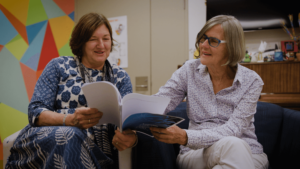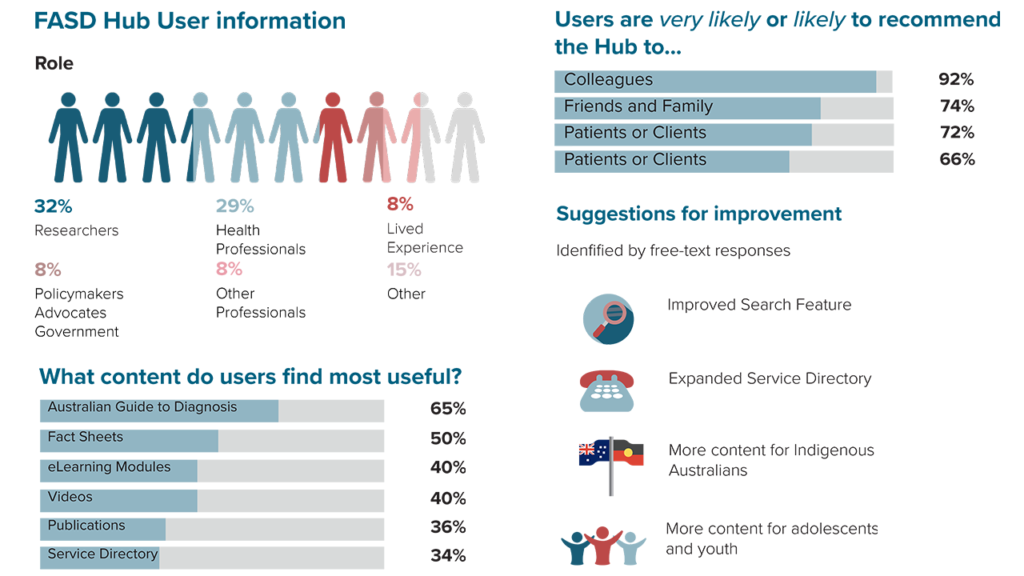

Distinguished Professor Elizabeth Elliott and Emeritus Professor Carol Bower established the FASD Hub in 2017
An evaluation of the FASD Hub Australia website has found that 92% of visitors were likely or very likely to recommend the FASD Hub to colleagues.
Published today in the Drug and Alcohol Review, the paper titled ‘Evaluation of the Fetal Alcohol Spectrum Disorder Hub Australia website’ found that users thought the FASD Hub was accessible, authoritative, and useful.

Established in 2017, the FASD Hub website was created to bring together the latest information about alcohol harms in pregnancy and FASD in Australia. Primarily targeted at health professionals, researchers, and policymakers, the FASD Hub also provides content relevant for people with FASD and their families, Aboriginal and Torres Strait Islander people, and women who are pregnant, planning pregnancy or breastfeeding.
Given the reliance on the internet from professionals and the general public and the amount of health information available on the internet, it is important that websites like the FASD Hub are easily accessible, and that content is both relevant and evidence based.
The evaluation focused on three elements:
- an online REDCap user survey incorporating the Website Evaluation Questionnaire (WEQ) along with open ended questions;
- Google Analytics data; and
- an accessibility audit looking at whether the website met current website accessibility guidelines.
Google metrics identified 25,534 unique users over a six-month period, with the majority of visitors aged 18-44 years, and 72% identifying as female. The overwhelming majority of visitors found the content trustworthy (92%), but participants wanted more information for, and to support, Aboriginal and Torres Strait Islander Communities, and improved search capacity.
“Creation of the FASD Hub has been critical. Before it was established, there was no single destination for credible, evidence-based resources about FASD for clinicians, researchers and the general public.”
“Many resources were available only in hard copy, were from overseas, and were limited to certain jurisdictions – meaning different people had access to different information.”
“The FASD Hub set out to change this – and to showcase Australian data for the local context,” said FASD Hub Chair and last author on the paper, Professor Elizabeth Elliott.”
Stay connected
Join our mailing list to hear more from the FASD Hub, including our monthly newsletters, webinar invitations, and new publications.
Acknowledgement of Country
FASD Hub Australia acknowledges Aboriginal and Torres Strait Islander peoples as the Traditional Custodians of Country throughout Australia, and we recognise their connections to land, water and community. We pay our respect to their elders past and present, and extend that respect to all Aboriginal and Torres Strait Islander peoples.
